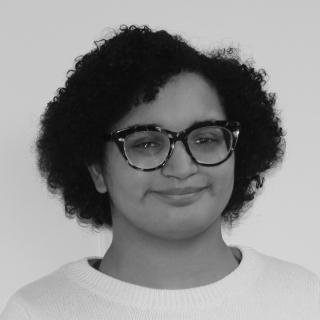
Nicole Jordan is making sure the Philadelphia Orchestra runs smoothly as head of its library
Although it wasn’t her goal to be first, the principal librarian hopes that she inspires the next generation of orchestra members.
You can’t go to school or get formal training to be an orchestra librarian. Which is a little surprising when you consider how important their work is to an orchestra’s function. The simplest explanation of what an orchestra librarian does is making sure that everyone has the correct music, when and where they need to have it.
Librarians do a lot of work backstage to make sure that everything is correct before it goes out. This means doing a range of things, from checking to make sure that the orchestra and conductor pieces match to checking the copyright.
In 2020, the Philadelphia Orchestra hired Nicole Jordan to be its new Principal Orchestra Librarian. This makes her the first Black woman to hold a full-time principal role in the orchestra’s 122-year history.
As honored as she is with the distinction, the Philadelphia native didn’t set out to be the first.
“I just really pursued something I was really passionate about and really felt that I [could] do that at a really high level,” Jordan remarked during an interview with AL DÍA News.
An Early Fascination
Jordan’s journey with music began in the 2nd grade. She was given a musical aptitude test, and when she did well, a trumpet. She played the instrument up until high school when she took a strings aptitude test and switched to viola.
After high school, Jordan attended the University of Minnesota Duluth and received a bachelor’s degree in musical performance for viola.
There aren’t many orchestra librarian jobs out there, and even fewer that are at the principal level like Jordan’s. Most of the time, the librarian duties fall to whichever musician is the most organized. This means that most librarians, Jordan included, find the career by accident or fall into it.
Jordan found out about the profession while pursuing her master’s degree in music history from Temple University. She was discussing doing library work for her undergrad’s summer festival with the ensemble librarian. They told her that a good way to get experience would be through the Philadelphia Orchestra’s fellowship program.
She got into the two-year fellowship and spent most of her first year doing file work. During the summer when the orchestra went on break, she picked up more hands-on experience through festivals.
After finishing her master’s, Jordan landed a job as the Assistant Principal Librarian at the Atlanta Symphony Orchestra. She stayed with the orchestra for 9 years and was made the Principal Librarian after 5.
Navigating the Pandemic
Jordan became the Principal Librarian of the Philadelphia Orchestra in the middle of the COVID-19 pandemic which forced everyone, orchestras included, to figure out how to work with the restrictions.
According to Jordan, orchestras are still very analog. As the orchestra switched to digital concerts, people had to learn new skills for a job they were used to doing with pen and paper.
Despite the learning curve, Jordan said that technology actually made things more efficient. It led to less paper waste and easier communication on certain things.
RELATED CONTENT
An Advocate for Better Representation
By the nature of her work, Jordan wears many hats. For a concert in December 2021, one of those was a Santa hat. During the Omicron surge, the original person playing Santa Claus caught COVID and had to drop out the day of the concert. The crew scrambled to get a new Santa with a negative test, but getting a same-day test was proving harder than they anticipated.
With around three hours to showtime, Jordan volunteered to stand in for Santa, thinking that she’d just have to put on the hat. Instead, she was fitted with the entire outfit, beard included.
She said that besides the experience being fun, she thought about how cool it would be for a little kid, possibly at their first orchestra concert, to see a “brown woman Santa Claus.”
Representation is a big part of what she hopes to change about the orchestra. As stated in the beginning, she is the first Black woman to be a full-time principal at the orchestra, but she does not want to be the last. She hopes that the next generation will be more diverse because they saw that they can become orchestra members.
“And to help bring more people that look like me into the fold. Because it’s important, yes, to see people on stage that look like you but it’s also important to have people behind the stage supporting what’s on the stage that looks like you as well because that’s how the culture shifts,” Jordan said.
“I guess first and foremost, I would, for myself, like to just continue to be in a position to challenge who classical music is for and who can participate in that, you know music is considered a universal language, right? But for classical music it looks a very specific way. And if it's supposed to be a language for everyone, how does it not reflect what everyone looks like?”
One way that the Philadelphia Orchestra has challenged who can participate in classical music is by playing and recording two symphonies by Black composer Florence Price. Because of her race and gender, Price did not receive the fame and recognition that she may have gotten otherwise. The orchestra has recently won a Grammy for Best Orchestral Performance for their recordings of Price’s first and third symphonies.
Jordan said of the win, “I cannot begin to express how meaningful this Grammy win is. To have this recording be recognized like this is unbelievable. More than anything else though, I am thrilled for Florence Price and her estate. She has been and is deserving of this recognition of her genius.”
Having diversity among those in prominent positions like Jordan can go a long way towards making sure that work involving something as universal as music feels, and is, open to everyone.











LEAVE A COMMENT:
Join the discussion! Leave a comment.